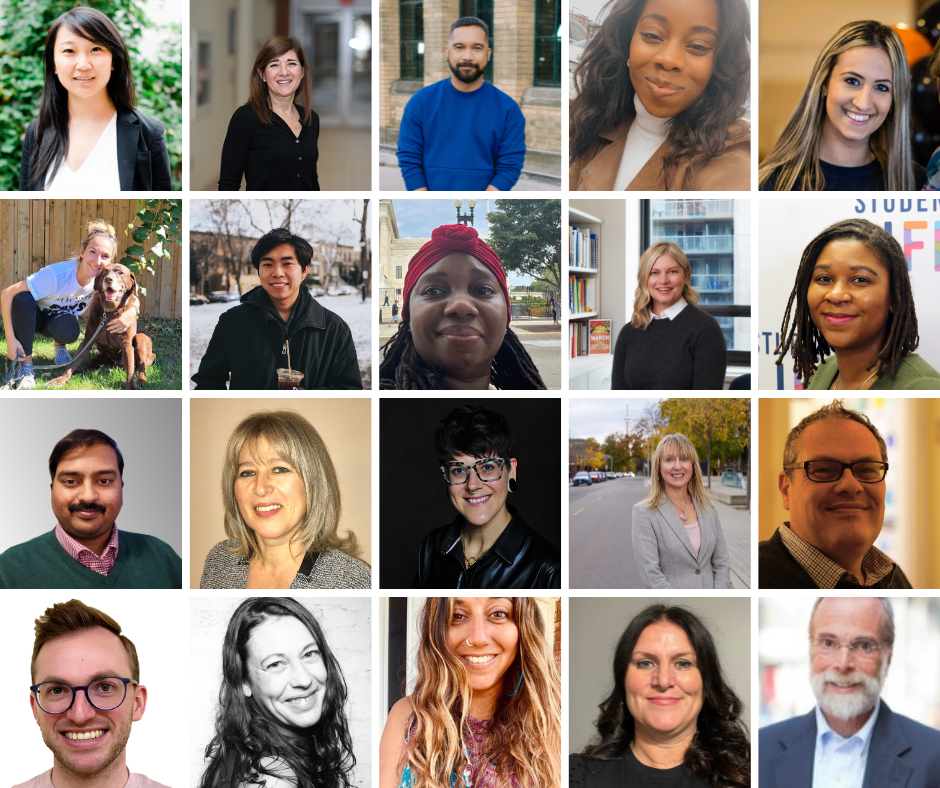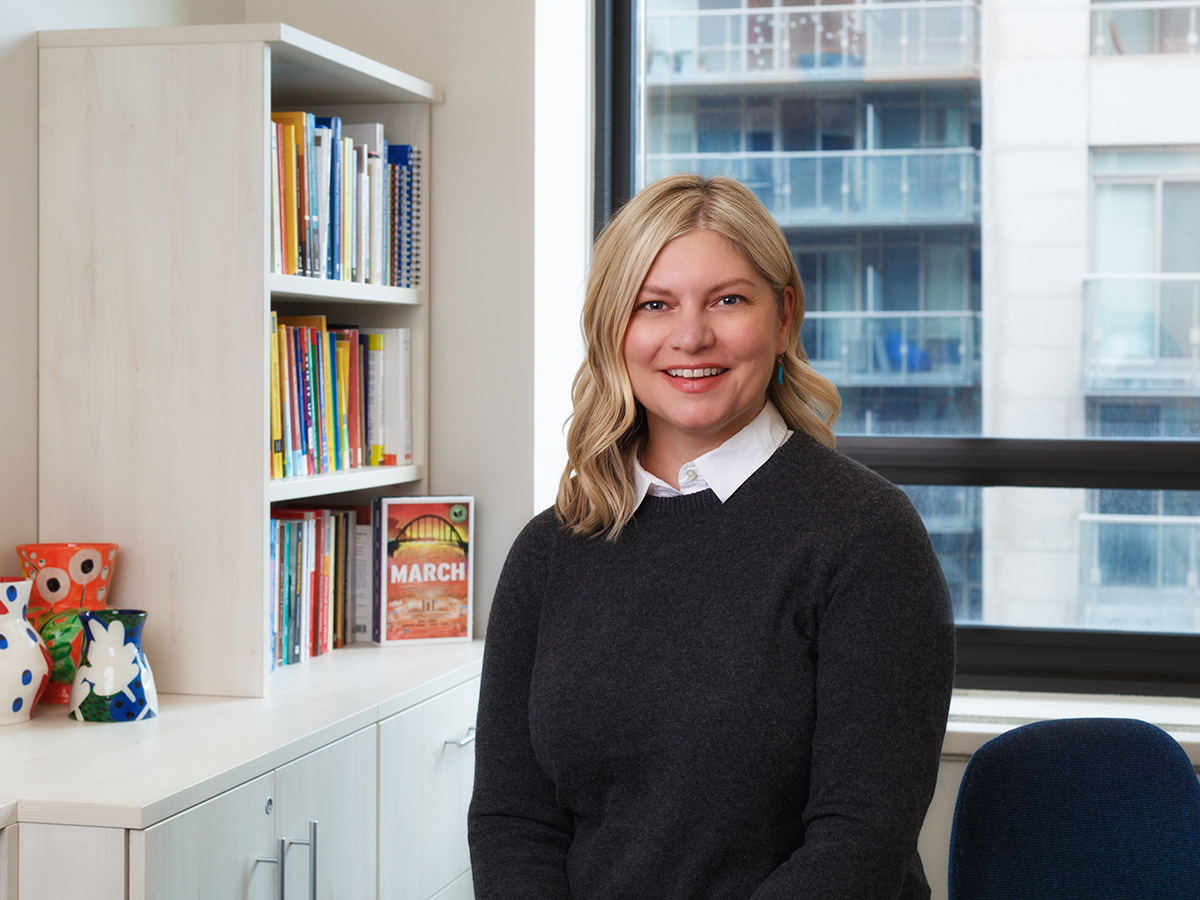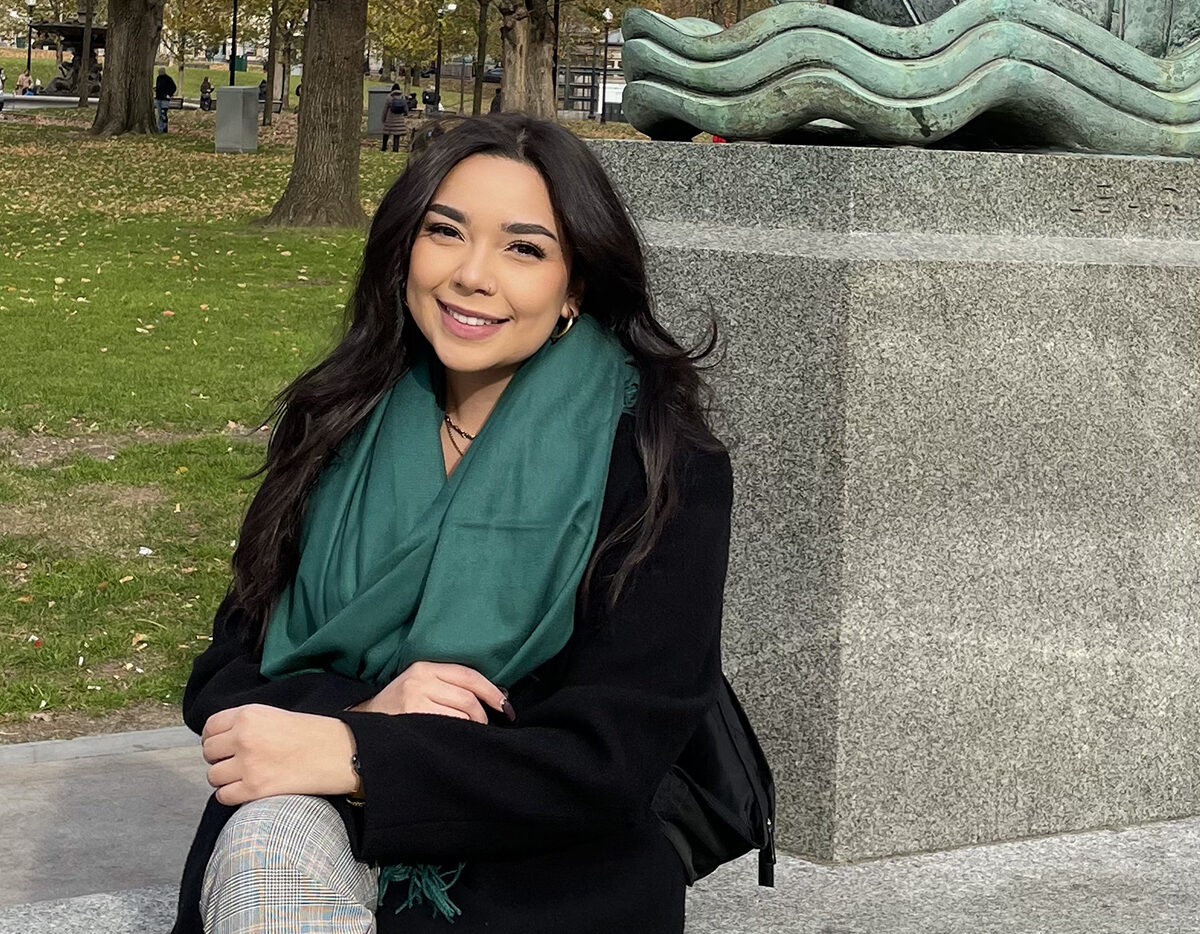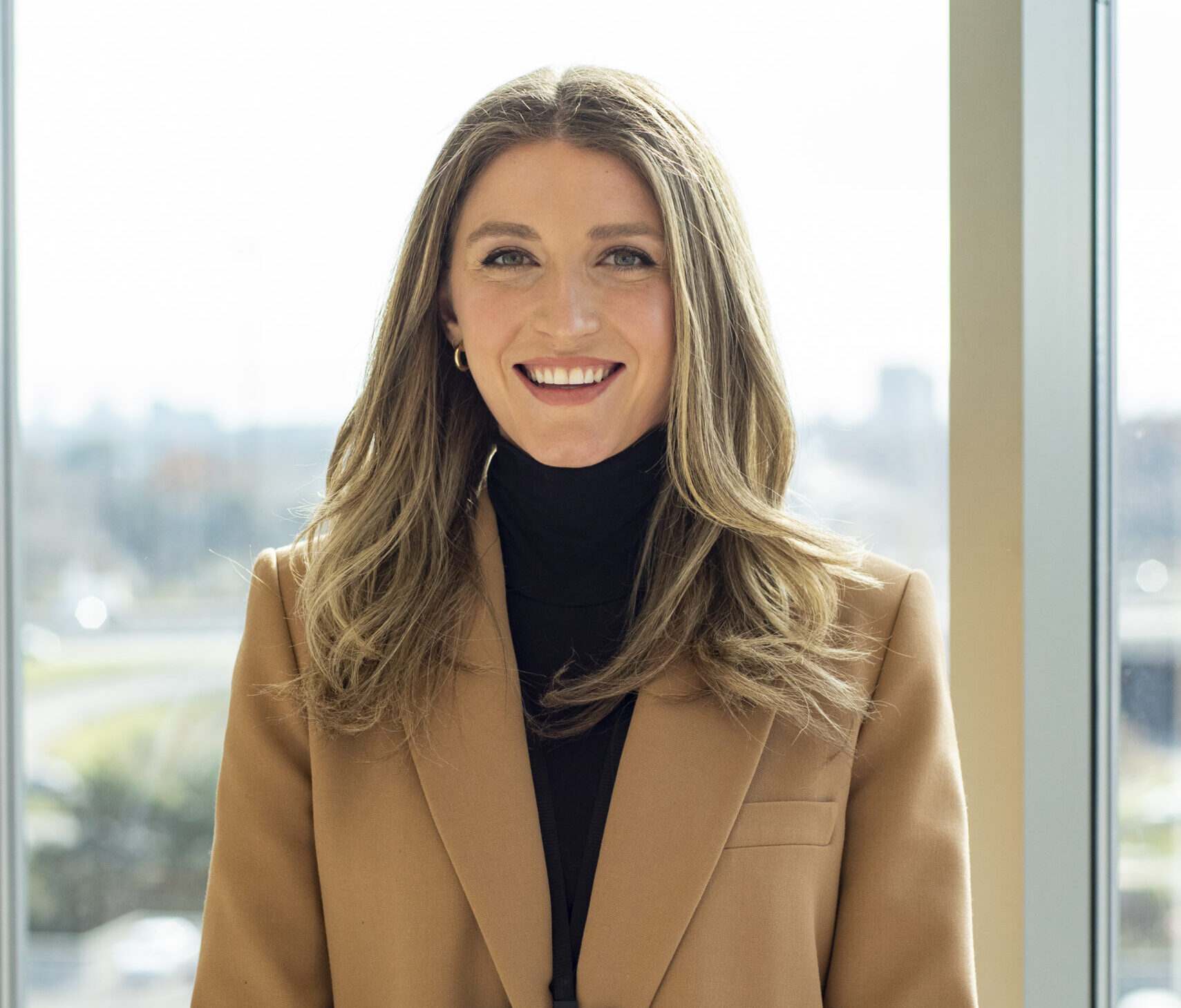#SocialWorkOpensDoors — how FIFSW faculty, alumni, students, partners, and collaborators are opening doors for the communities they serve
Categories: Alumni + Friends, Faculty, Q & A, StudentsMarch 4 to 10 is Social Work Week, and March is National Social Work Month. This year the Ontario Association of Social Workers is celebrating by highlighting the many ways that #SocialWorkOpensDoors.
We asked FIFSW faculty, alumni, students, partners, and collaborators to share how they are opening doors for the communities they serve and shared their answers below.
(Scroll to the bottom to learn how you can also contribute.)
How do you open doors for the communities you serve?
Michael Adia
MSW 2018
Co-Founder, Hope Leads Mental Health Care
Wellness Counsellor and Coordinator, Health & Wellness, University of Toronto
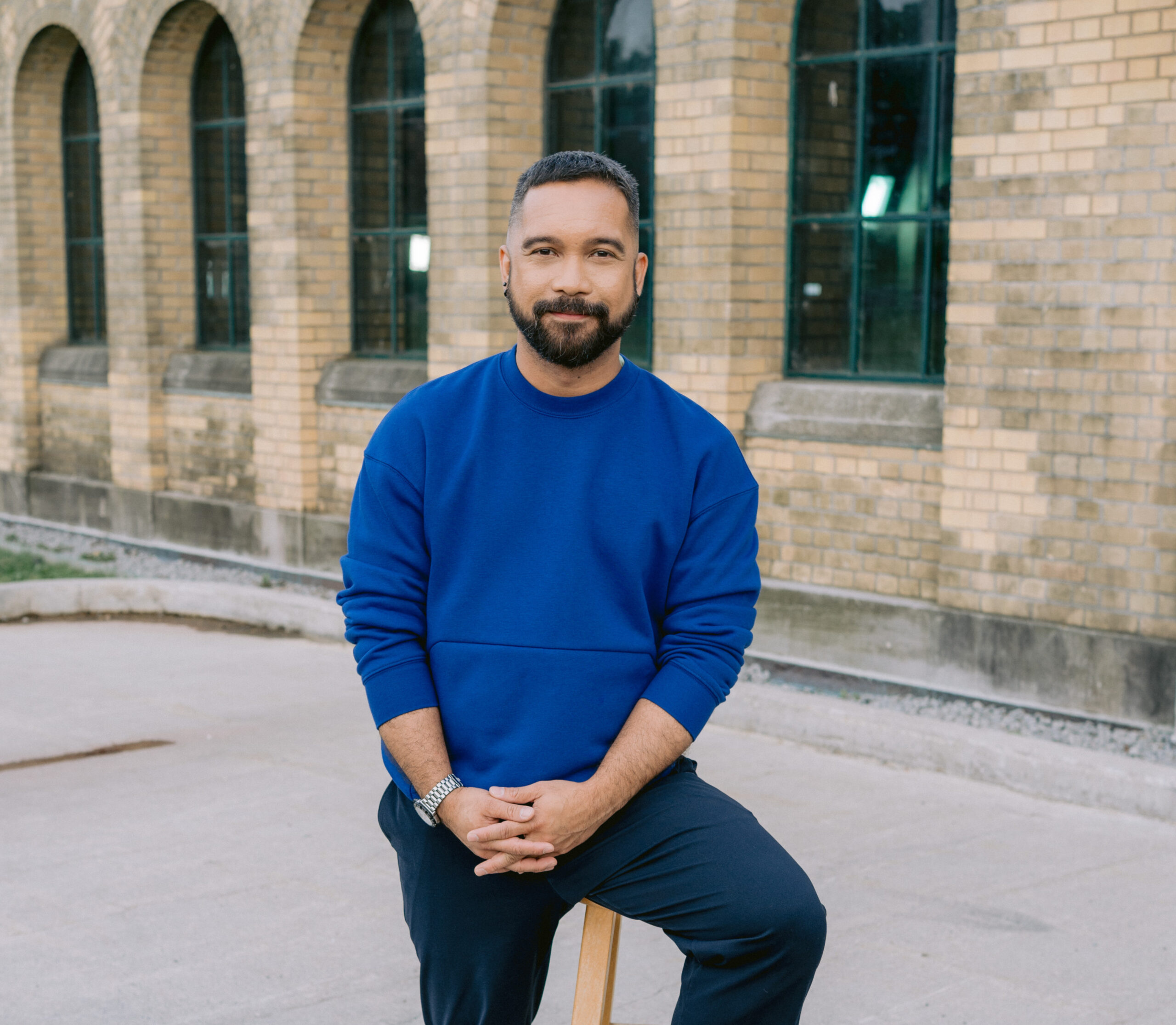
As a social worker, opening doors for me means meaningful mentorship. By providing support and relevant opportunities for future social workers to thrive, we can create a community of practice that values empowerment, generosity, and supportiveness. Through this we can contribute to ensuring the continuity of care for people’s well-being across the province and beyond.
Learn about FIFSW’s EDI workshop, which Michael Adia co-facilitates and read about his involvement with Hope Leads Mental Health Care, which offers inclusive care to racialized and queer communities.
Ashley Quinn
MSW 2007, PhD 2016
Assistant Professor, FIFSW, University of Toronto
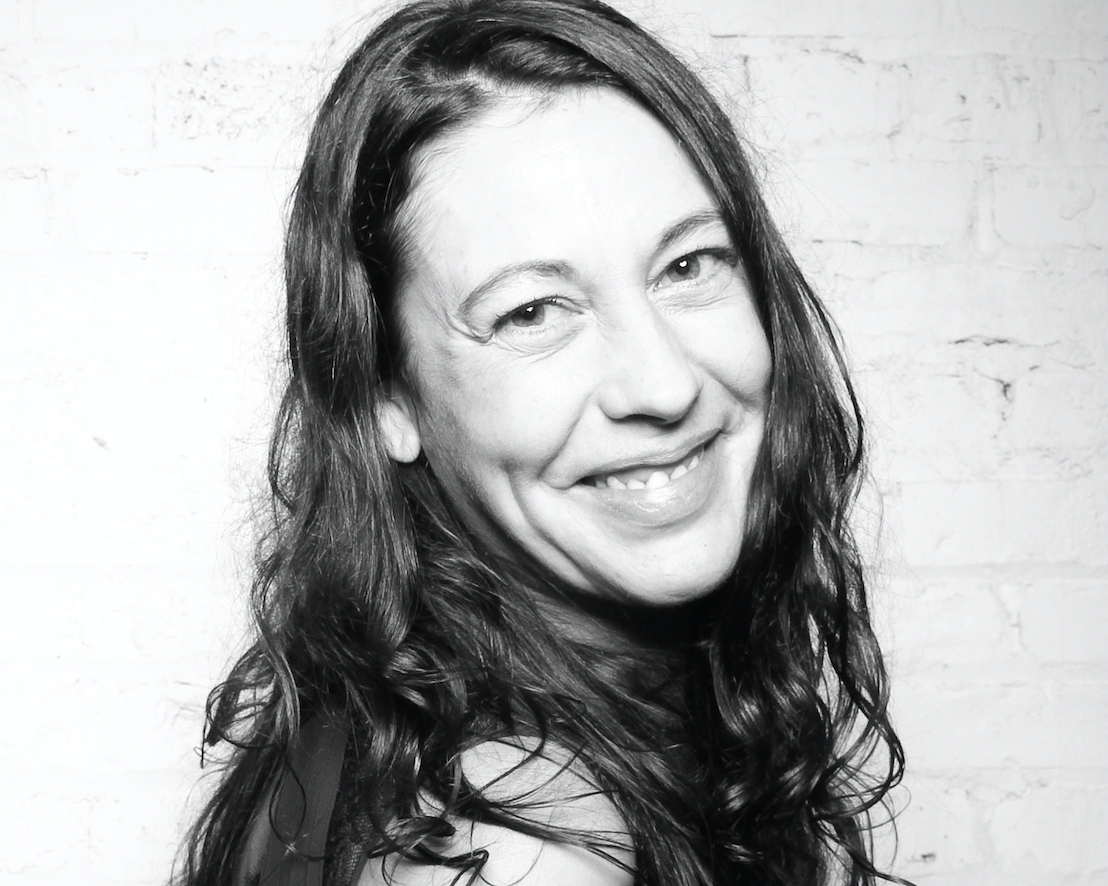
I am opening doors as a social worker by partnering with our students, such as Karima S. Jaffer, to co-create diverse and innovative perspectives that enrich Indigenous learning in social work education and practice. Coming together with a Two-Eyed Seeing approach, Karima and I have worked on projects that promote the Medicine Wheel, Seven Grandparent Teachings, and IQ Principles to find proactive solutions to the world’s biggest problems impacting Indigenous communities. This includes topics such as challenging food insecurity, literacy and numeracy rates, and the need to enhance Indigenous child welfare research through the Truth and Reconciliation Commission (TRC), Jordan’s Principle, and Shannen’s Dream. We also hope to create pathways where we understand how to better engage students and other professionals to better the systems impacting these populations. By mentoring students like Karima, I hope to work with the new generation to bring restorative justice through such collaborations.
Read how Ashley Quinn’s research is promoting cultural connections and identity for Indigenous children in the child welfare system.
Elo Igor
PhD student, FIFSW
RISE YBMen, Toronto Project Coordinator
Centre for Research and Innovation for Black Survivors of Homicide Victims

In every role I assume as a social worker, I have had the absolute privilege of hearing peoples stories. It is my responsibility to honour each person I have worked alongside by making space and amplifying their narratives to advocate for social change. I truly believe that community makes the world go round; we need each other. By keeping the door open for one another, we will eventually break it down.
Learn more about RISE YBMen and The Centre for Research & Innovation for Black Survivors of Homicide Victims (The CRIB).
Dillon Dodson
MSW 2013
Field Instructor & Adjuct Lecturer, FIFSW
Director, Social Work, Toronto Humane Society
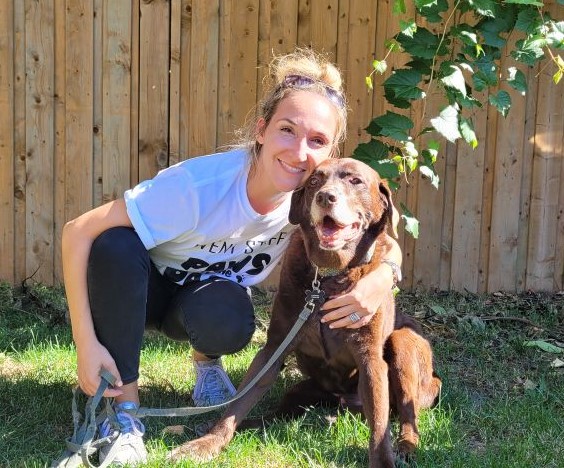
Learn how to become a FIFSW Field Instructor, like Dillon Dodson.
Vivian Zhang
MSW 2016
Field Instructor, FIFSW
Founder, Clinical Therapist, Vivian Therapy
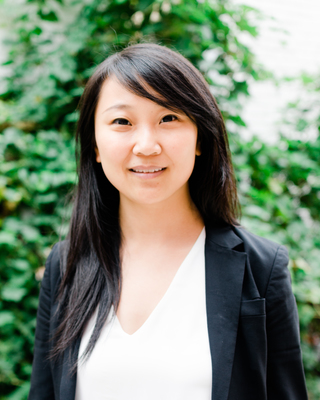
The concept of therapy was considered taboo in the Asian community, even in 2016. Since then, with the rise of awareness in Asian mental health, more knowledge and empowerment has been given to individuals around the supports they seek and with more visible representation in mental health providers. As a social worker, my hope is to continue to destigmatize the use of therapy by making it easy and approachable as well as be a point of connection for clients and future social workers/therapists in their mental health journey.
Read about the benefits of becoming a Field Instructor at FIFSW.
Laura Tamblyn Watts
Sessional Lecturer and Assistant Professor, Status Only
CEO, CanAge
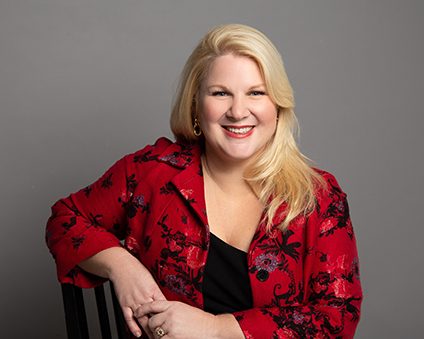
Read about Government of Canada funding to help prevent and address the mistreatment of older adults in Ontario — a project that Laura Tamblyn Watts is also involved with.
Michael Sullivan
MSW 1998
Policy Analyst, Accessibility Directorate of British Columbia
Ministry of Social Development and Poverty Reduction

I work through the Accessible BC Act which establishes a statutory framework for government to work in partnership with people with disabilities and the broader community to identify, remove and prevent barriers to the full and equal participation of people with disabilities. I worked on the development of the legislation and the regulation. We are currently working on the first two accessibility standards which will have implications for the private and public sectors:
- Employment Accessibility Standard – to ensure that barriers in hiring, training and retention for persons with disabilities are identified, removed and prevented.
- Accessible Service Delivery Standard – to ensure that events, activities, and the process of buying goods are provided in accessible ways that enable the inclusion of people with disabilities.
Learn about FIFSW’s combined Law and Master of Social Work (JD/MSW) program.
Kaitrin Doll
PhD Candidate
Co-chair of the Canadian Regional Research Network, INQYR
Course Instructor, FIFSW, University of Toronto
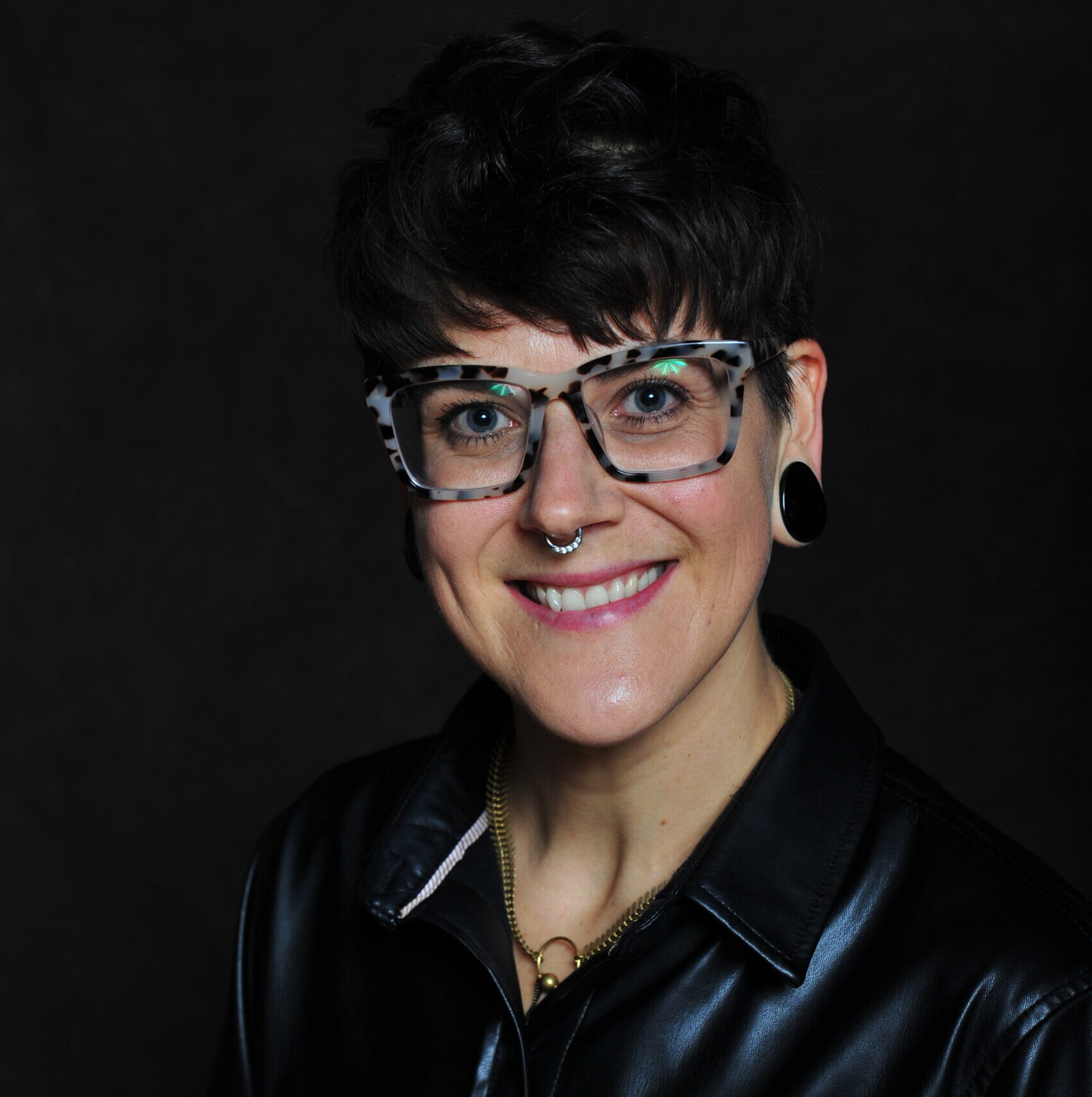
I contribute to ‘opening doors’ in social work research by highlighting the importance of cultivating inclusive and empowering spaces where sexual and gender diverse (SGD) communities can thrive. My research is focused on the lived experiences of SGD groups and the significance of community belonging, social support, and connectedness for mental well-being. My doctoral work investigates the positive impacts of sports participation in affirming environments. By examining roller derby as a case study, I hope to highlight its role in affirming identity, fostering community, building resilience and enhancing mental health and experiences and joy among SGD individuals. Over the past four years, I have been a part of the International Partnership for Queer Youth Resilience (INQYR), a collaborative initiative aimed at strengthening the resilience of SGD youth through interdisciplinary and international research efforts.
Read about Kaitrin’s research project, Reimagining Roller Derby, on INYR’s website.
Zahra Alysha Wells
MSW student, CAMH Social Work Student
Member of the Core Engagement Team for the FIFSW Academic Strategic Plan
Vice-Chair of MSW Studies Committee
Y1 Student Representative for Faculty Council Committee
Past Co-President of the FIFSW Graduate Student Association
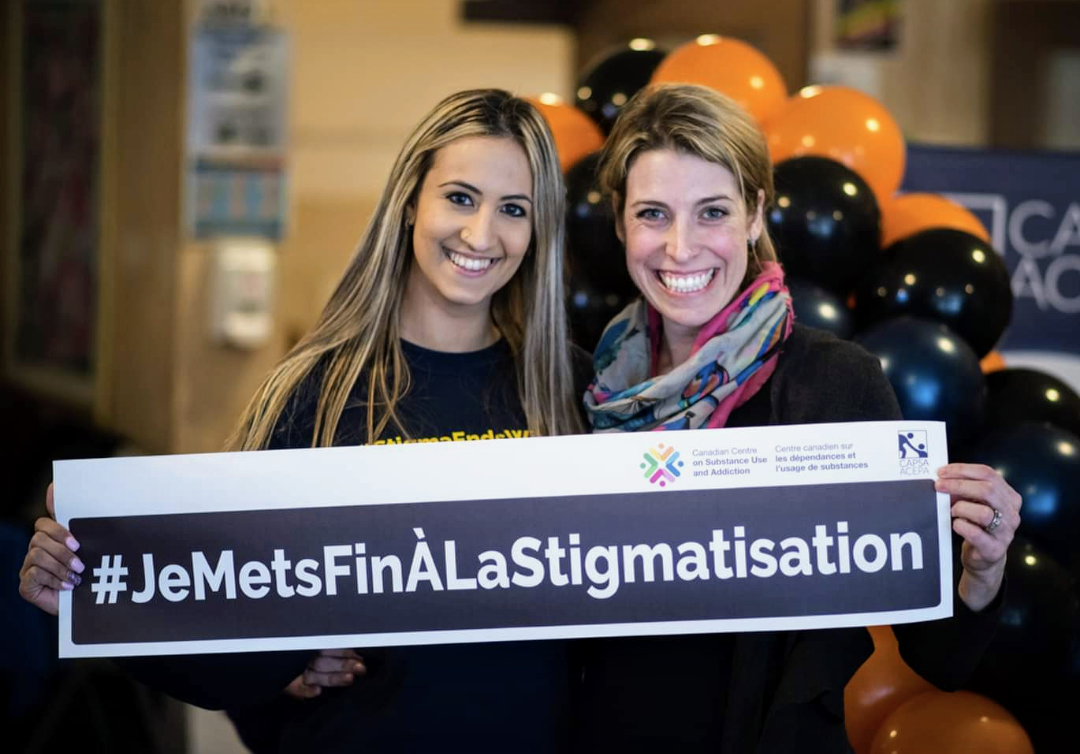
Learn about the launch of the consultation process for FIFSW’s new strategic plan and how you can provide feedback.
Photo: Zahra Wells, left, at a community event hosted by Community Addictions Peer Support Association (CAPSA Canada)
Jeremy Reinblatt
MSW 2019
Field Instructor and Adjunct Lecturer, FIFSW, University of Toronto
Social Worker, Centre for Addiction and Mental Health (CAMH)
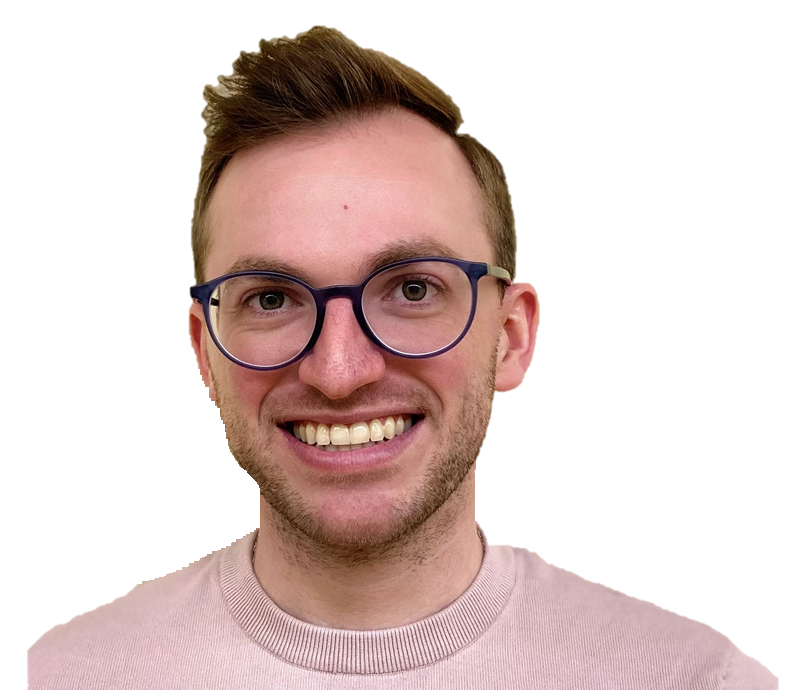
As a social worker, I strive to be a strong advocate for the clients I work with, who might otherwise not be able to advocate for themselves. Community supports, housing, and re-integration is a large part of my role, and I see and respect the part that social work plays in helping vulnerable individuals achieve these goals. I strive to bridge gaps for complex client populations, including those with dual diagnoses in the forensic mental health system. I also value the importance of learning, and therefore enjoy giving back to the social work community by supervising social work students who will one day continue to open doors to communities.
View the upcoming professional development schedule for FIFSW Field Instructors.
Vithusan Arunakirinathan
MSW Student, Mental Health and Health Field of Study, Year 2
Placement Student, Ontario Shores Centre for Mental Health Sciences, Complex General Psychiatry and Forensic Community Reintegration Unit

As a Social Work student committed to equity, social justice, and anti-oppressive practice, I am opening doors for individuals and communities by fostering collaborative relationships and engaging in interprofessional collaboration. By demonstrating active listening, understanding diverse needs, and advocating effectively, I work collaboratively with individuals and families to address the barriers and systemic inequities they face. Through these efforts and by building partnerships with members of the interprofessional team as well as individuals and families, I strive to cultivate a wholistic network of care that supports them in navigating their pathways to healing, ensuring they have equitable access to the opportunities and resources necessary to thrive.
Learn about the University of Toronto’s Interprofessional Education Curriculum, which provides health professional students with the knowledge, skills and attitudes necessary for collaborative interprofessional practice.
Adriana Shnall
MSW 1988, PhD 2014 Program Director Koschitzky Centre for Innovations in Caregiving
Assistant Professor, Status-Only, FIFSW, University of Toronto
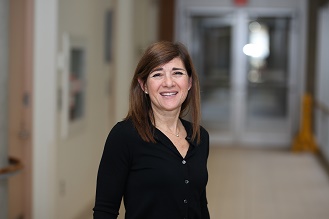
I’m passionate about making a real difference in the lives of older adults and their families. As the Program Director at Baycrest’s Koschitzky Centre for Innovations in Family Caregiving, I’ve spent over three decades working closely with older adult and their families. Whether it’s through teaching at the University of Toronto and training the next generation of social workers, or leading innovative research and initiatives to support family caregivers, I’m committed to opening doors to improve the quality of life for everyone I have the privilege to serve.
Check out the project Understanding Resident-to-Resident Interactions (URRI) in Ontario Long Term Care, c0-led by Adriana Shnall.
Farai Gore
Field Instructor, FIFSW
Program Manager, Delta Family Resource Centre
Faculty Advisor, York University
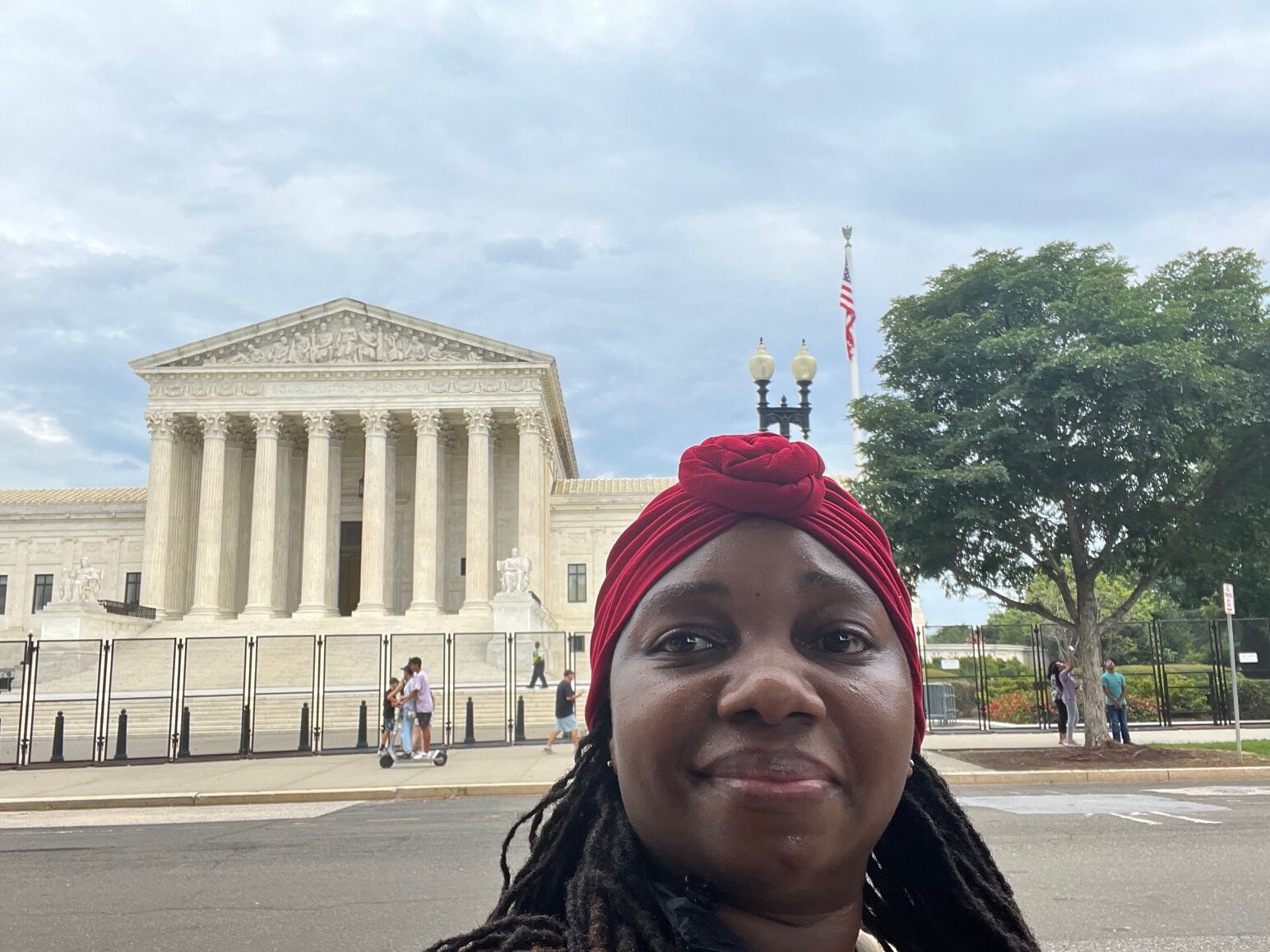
I am working to open doors by supporting individuals, families, and marginalized communities, who are often isolated due to limited access to resources. I do this by challenging and addressing barriers that have existed, and continue to exist, through time, and by creating learning opportunities and empowering communities through advocacy. With the knowledge that many who have come before me created spaces that I can walk through today, my hope is that many who will come after me can say that I have been able to work intentionally to support their pursuits in navigating the field of social work.
Read insights and advice from FIFSW Field Instructors.
Stephanie Begun
Associate Professor, FIFSW, University of Toronto
RBC Chair in Applied Social Work Research
My work with youth researchers, particularly through participatory, arts-based, and qualitative research designs, has been so inspiring. Though I mentor young people on how to get involved in research, I certainly learn far more from them than they do from me. Their brilliant efforts serve as important reminders of all that is lost when systems and policies are designed for young people without their input.
Hogan (Chi Ho) Lam
MSW 2022
Diversity and Inclusion’s Specialist, Ontario Disability Employment Network
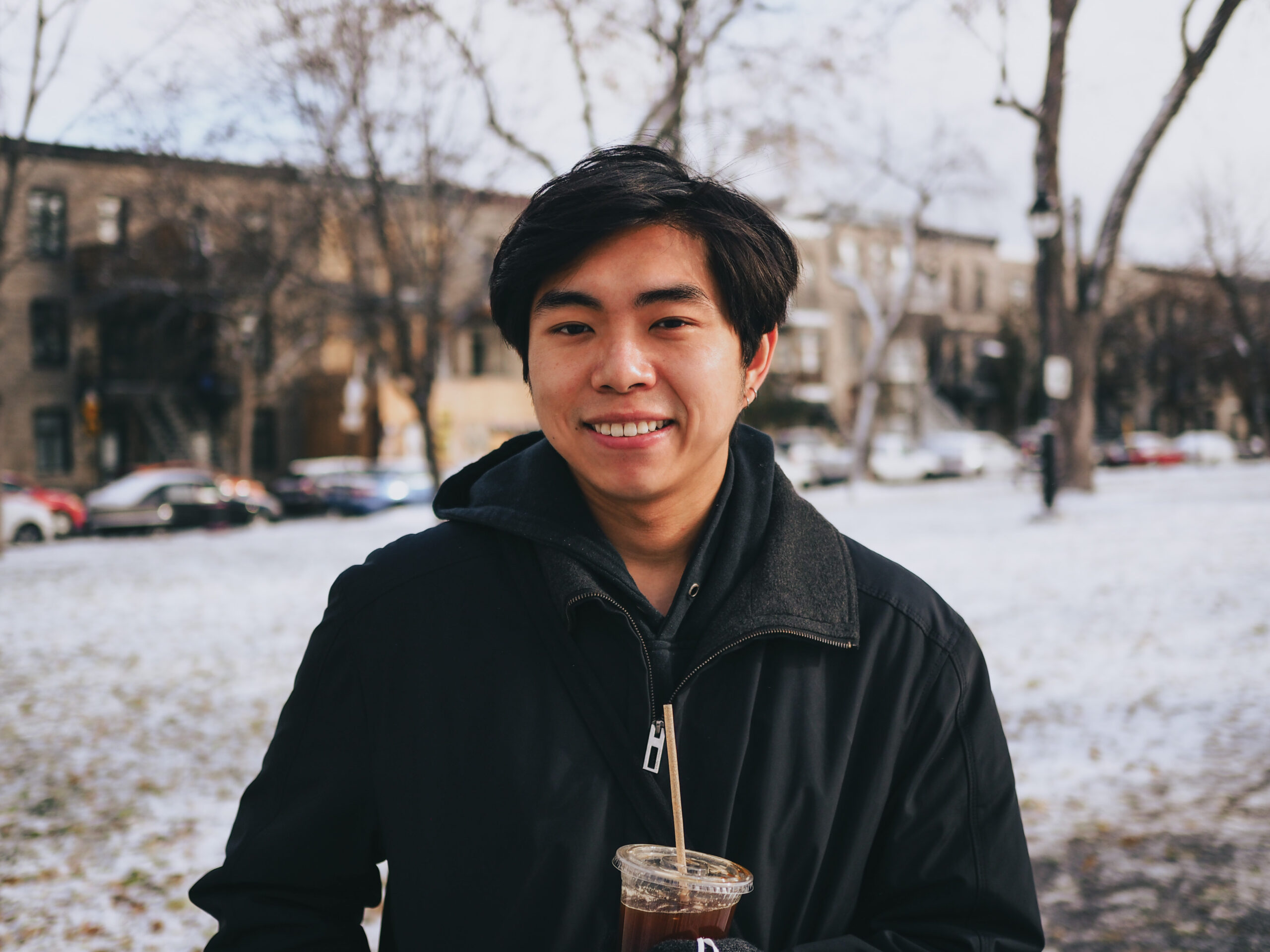
As a macro social worker, I work with the disability communities, businesses, non-profit professionals, and the government to co-create a more inclusive and accessible work environment for people with disabilities. At Ontario Disability Employment Network, we open doors not only for people with disabilities, but also for businesses and other stakeholders to build their disability awareness and confidence – social work opens doors for inclusion, diversity, equity, and accessibility.
Read a report that anti-Asian racism during the COVID-19 pandemic that Hogan Lam co-authored in 2023.
Svetlana (Lana) Popova
PhD 2006
Senior Scientist, Centre for Addiction and Mental Health (CAMH)
Associate Professor, Status Only, FIFSW, University of Toronto
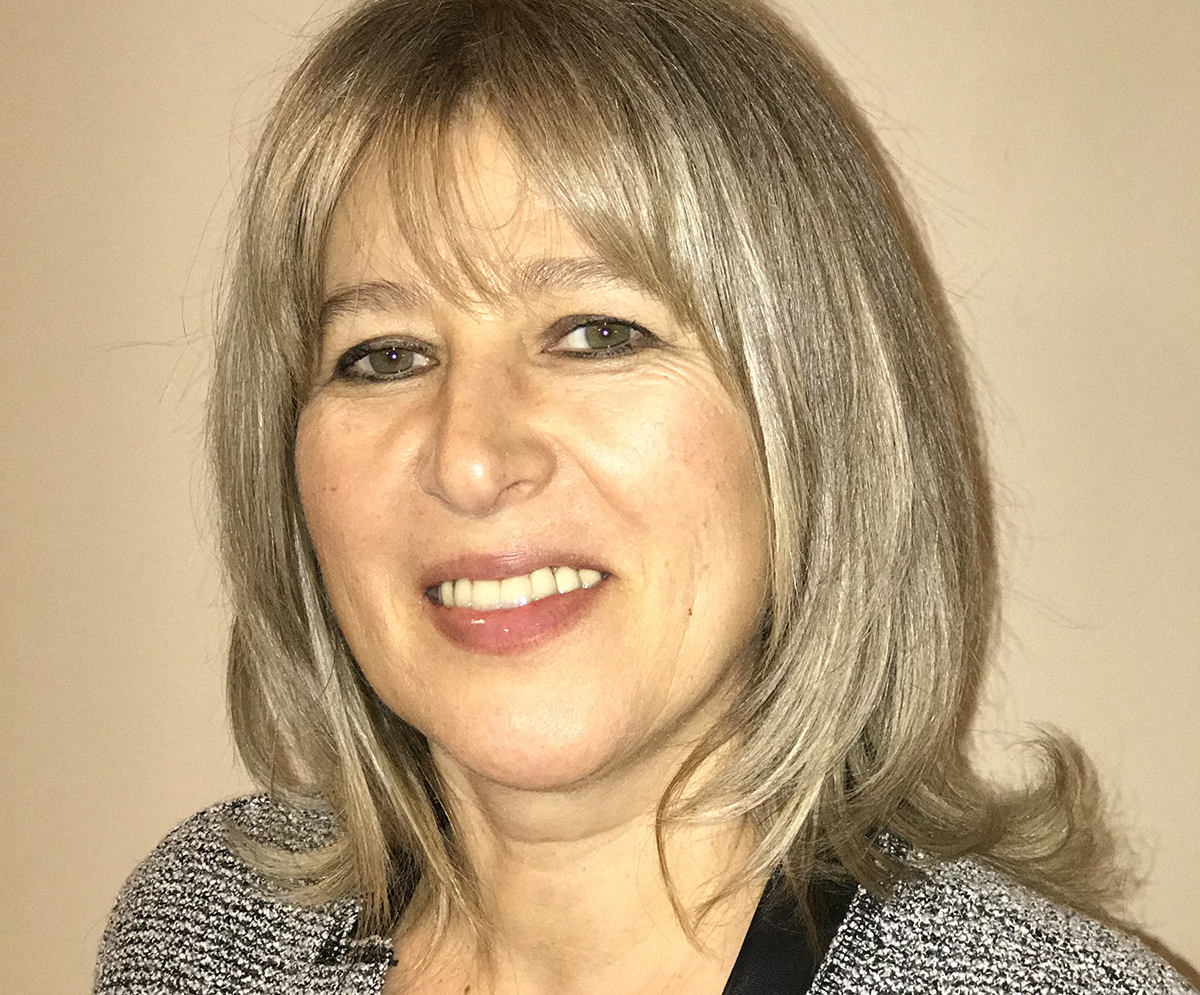
My overarching goal is to prevent alcohol and other substance use during pregnancy. Alcohol is a teratogen and can cause permanent brain damage, resulting in neurodevelopmental impairments, intellectual disability, and mental health problems in prenatally exposed people. My education and intervention initiatives target children, adolescents, childbearing age and pregnant women, their partners and families, parents of children with Fetal Alcohol Spectrum Disorder and communities around the globe. Alcohol and Pregnancy DON’T Mix!
View Svetlana Popova’s profile on FIFSW’s website.
Steve Lurie
MSW 1973
Adjunct Professor, FIFSW, University of Toronto

During my 45 year career in community mental health, I focused on working to reduce stigma and homelessness by advocating for funding to increase evidence based community programs such as Housing First. There is no health without mental health.
Steve Lurie is part of the Core Engagement Team for FIFSW’s Strategic Plan. Learn about the engagement process and how you can share your feedback.
Hannah Jackson
MSW 2020
Learning Strategist, Accessibility Services, University of Toronto
Psychotherapist, private practice
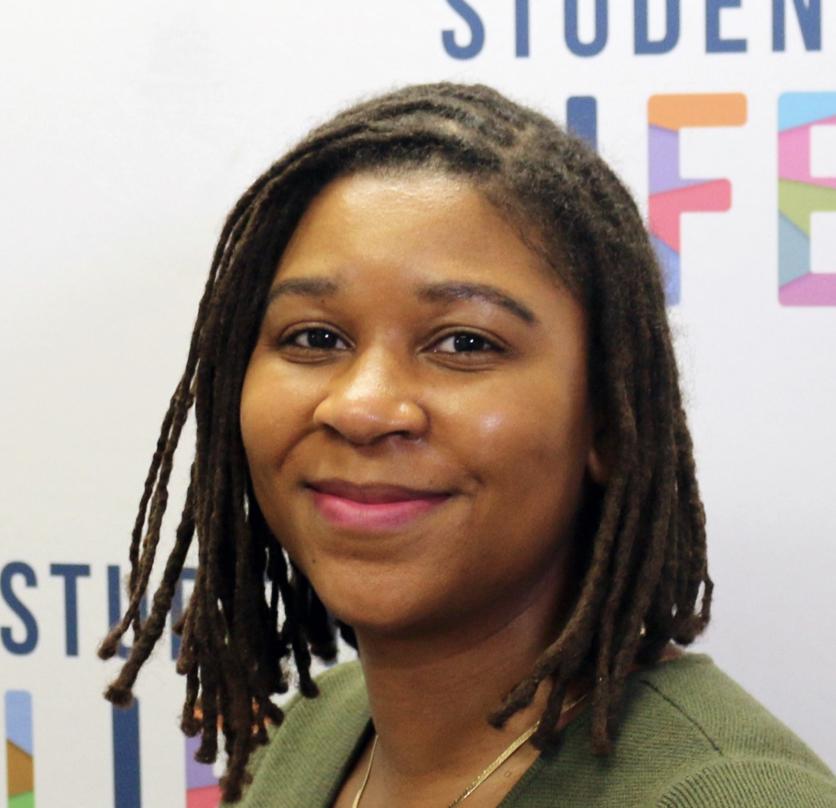
In February 2024, I initiated a Black History Month panel within the Accessibility Services Office. After years of working with Black disabled students who felt they had to choose one identity or the other, I felt compelled to leverage my positionally to create an inclusive and uplifting space for these intersections. I am grateful to have had a supportive team that helped bring this idea to reality.
Learn about learning strategist support offered to U of T students through Accessibility Services.
Celissa Vipond
MSW 2010
Clinical Director, Virtual CBT Psychotherapy
CBT Consultant & Faculty Member, Ontario Structured Psychotherapy Program
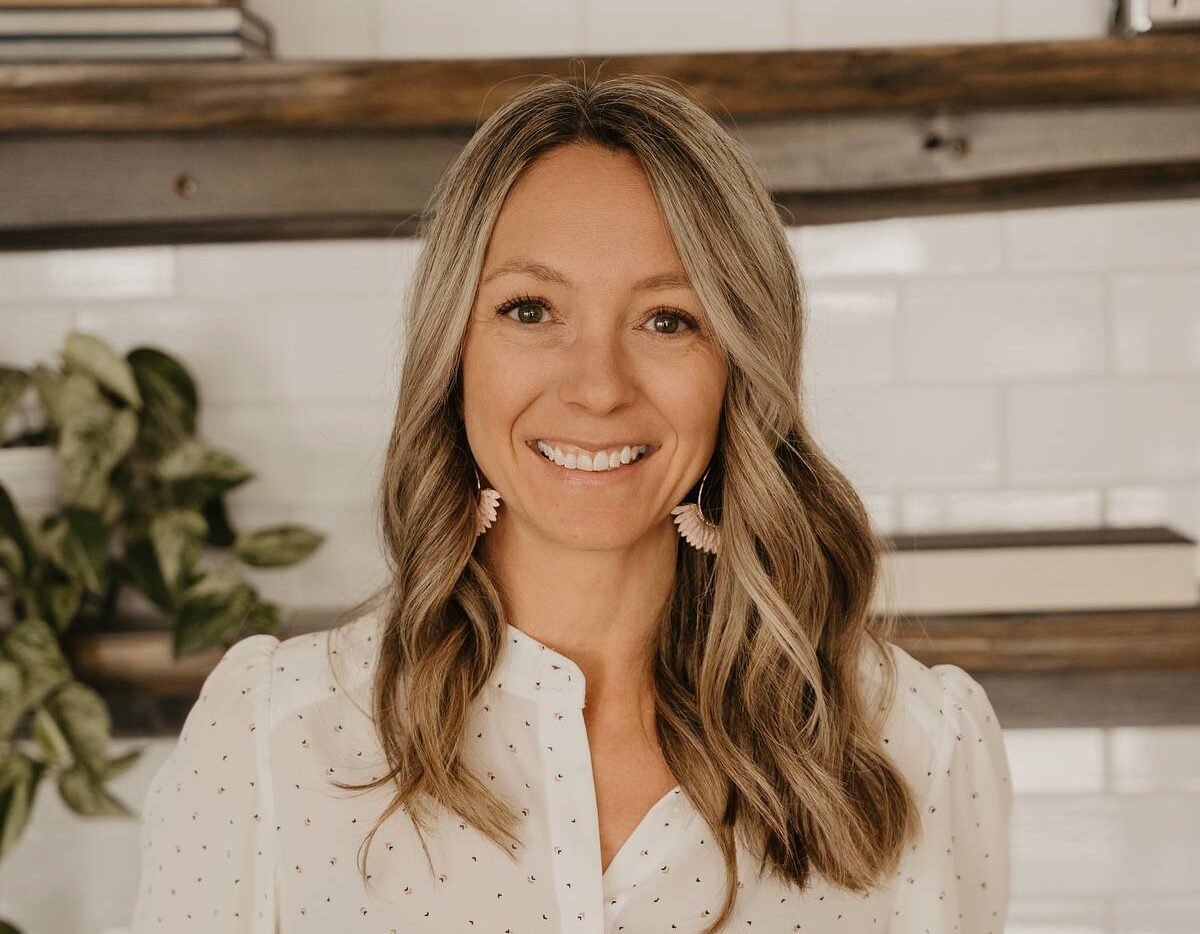
In 2023, I won an award for “Innovation” with Waypoint Centre for Mental Health Care for helping increase access to free therapy for priority populations by making small changes over time in their marketing and operating plans. I am also opening doors through a virtual private practice I co-founded that has helped hundreds of people receive specialized cognitive behavioural therapy (CBT) from the comfort of their homes. My team consists of 9 therapists with a variety of cultural backgrounds, education and specializations.
View information on the five fields of studies offered to MSW students at FIFSW.
Reshma Dhrodia
MSW 2012
Field Instructor, FIFSW
Equity, Diversity, Inclusion (EDI) Director, Faculty of Music, University of Toronto
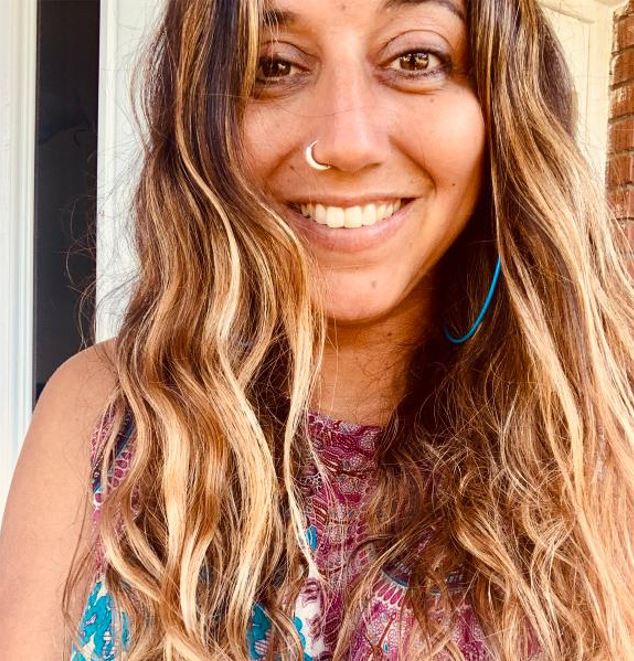
To develop and enhance EDI-related strategies, policies, programs, and practices within postsecondary institutions — to open doors for folks who belong to equity-deserving groups — involves acknowledging that access was intentionally closed or limited to countless equity-deserving communities for generations. It means knowing that barriers continue to exist to achieving full access and a felt sense of belonging for women, folks with disabilities, BIPOC and racialized communities, 2SLGBTQ+ folks, Muslims, Jewish community members, and so many others. I focus on building trust, developing a deep understanding of the needs of our Faculty’s communities, working collaboratively across difference, and ensuring I stay grounded and humble so I can nimbly adjust my approaches to the work as needs evolve over time.
Read more about Reshma and U of T’s other EDI Leads.
Shelley Craig
Professor, FIFSW, University of Toronto
Canada Research Chair in Sexual and Gender Minority Youth
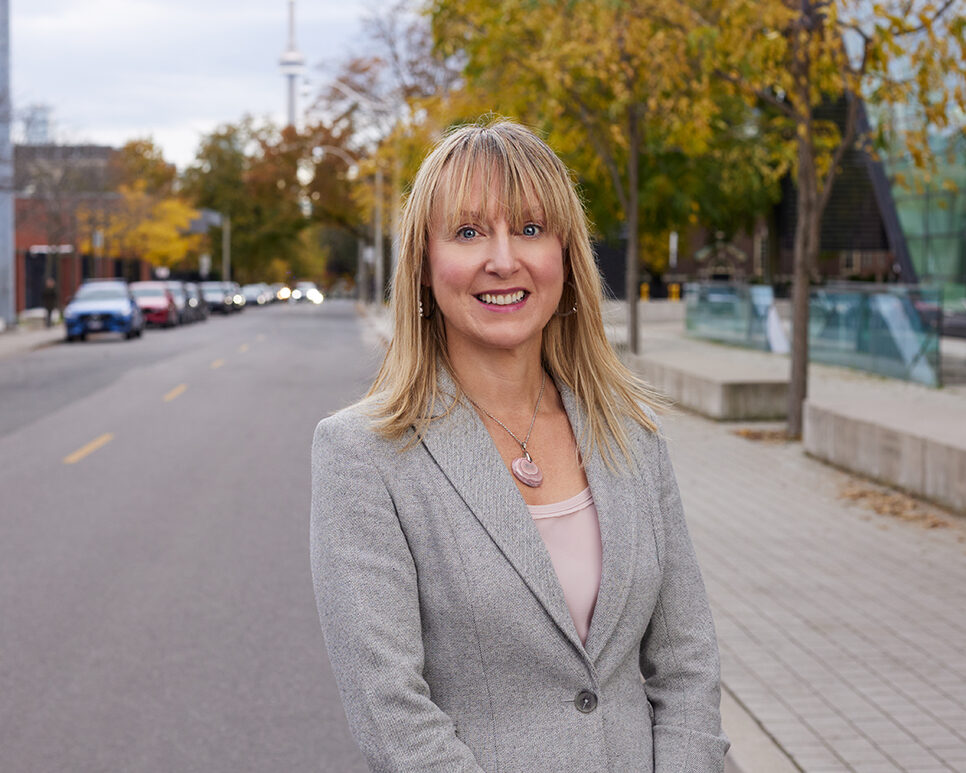
As Canada Research Chair in Sexual and Gender Minority Youth, I am opening doors for 2SLGBTQ+ youth by leading the International Partnership for Queer Youth Resilience (INQYR), an interdisciplinary and multilingual global partnership designed to support the resilience of sexual and gender minority (SGM) youth through technology-engaged research. I also lead AFFIRM, an affirmative cognitive-behavioural group intervention that empowers 2SLGBTQ+ youth to embrace their authentic selves in the face of discrimination.
Read about Shelley Craig’s research on social media use among 2SLGBTQ+ youth featured in Maclean’s, Time magazine, and The New York Times. Learn more about INQYR and AFFIRM via their websites.
Jennifer Burt-Yanoff
MSW 2003
Field Instructor, Adjunct Lecturer, and ATC Vice-Chair, FIFSW, University of Toronto
Professional Practice Leader, North York General Hospital
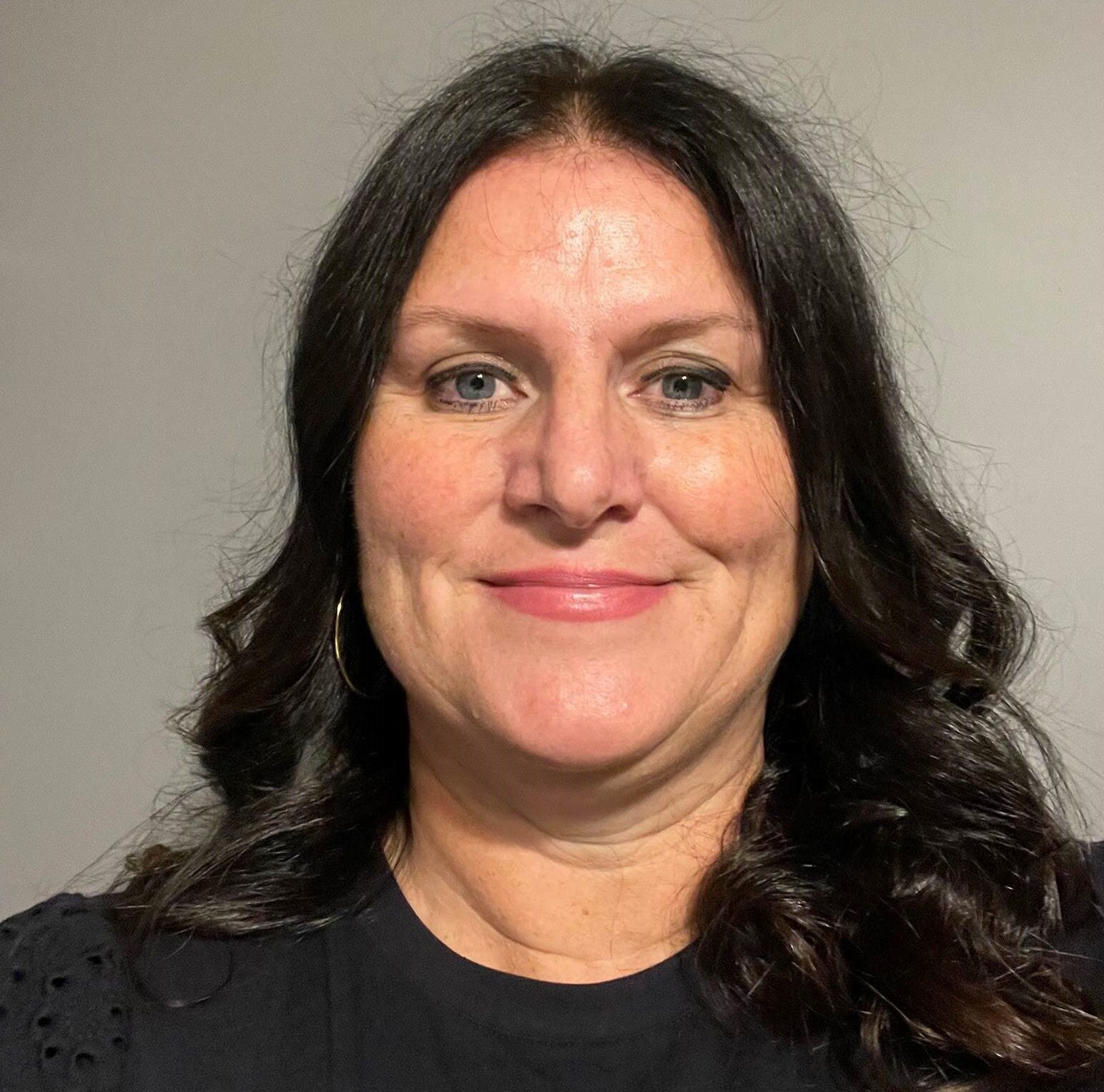
I open doors for new and existing Social Workers by supporting the delivery of high-quality clinical services, by offering coaching and mentoring, and by creating robust orientation schedules for new hires and graduate learners. I serve as a practice resource to social workers and team members, collaborate with internal and external leaders and community partners, participate in program and clinical team meetings, and conduct research and program evaluation. By opening doors I hope to elevate the role of social work within the healthcare landscape and help create space for leadership opportunities.
Valeria Ciric
MSW student
Graduate Research Assistant for Bordering Practices Research Project
Team Lead at the York Region Supervised Parenting Time Program
MSW Intern at The Children’s Aid Society of Toronto & St. Michael’s Hospital
My current professional roles involve developing evidence-based practices for interagency collaboration and bolstering support for families affected by intersecting systems (i.e., child welfare, health care, and/or family law). As a Graduate Research Assistant at the FIFSW, I also contribute to projects, such as Bordering Practices which seek to address systemic issues equitably and meaningfully, valuing different ways of knowing to best meet the needs of community members. My focus is on providing direct care that is culturally responsive and trauma-informed, while advocating for underserved and under resourced communities.
Emma Silver
MSW 2015
Clinical Social Worker, Child & Adolescent Outpatient Program, NYGH & Family Psychology Centre
As a Social Worker, I see opening doors for the communities I serve as a collaborative effort aimed at eliminating barriers to accessing care. In the context of children’s mental health, this involves amplifying the voices of caregivers, who play a pivotal role in supporting their loved ones. It involves implementing innovative interventions, tailored to meet the unique needs of young individuals, many of whom may not respond to conventional talk-based therapeutic approaches. It involves advocacy for essential resources and providing support across all aspects of a young individual’s life, be it at home, school, or within the broader community. Above all else, opening doors involves empowering young individuals to recognize the multitude of possibilities available to them, ultimately increasing their sense of hope, nurturing resilience, and expanding their horizons of what is achievable.
Shawnette Thompson
Talk It Out Clinic & Social Worker Psychotherapist in Private Practice
Field Instructor, FIFSW
How are YOU opening doors for the communities you serve?
Let us know! We will be accepting submissions for consideration throughout the month of March
Members of FIFSW’s community who work in the social work field are invited to respond to dale.duncan@utoronto.ca with the following:
- Your name
- Your professional title
- Your place of work if applicable
- Your relation to FIFSW (ex: student, faculty member, sessional instructor, alumni, field instructor)
- If you are alumni, you could include your year of graduation
- Your photo (high resolution if possible)
- A 1-3 sentence description of how you, as a social worker, are opening (or hope to open) doors to the communities and individuals you work with. (If it is possible to point to the impact of your work, that would be wonderful.)
Share your feedback on FIFSW’s future
We want to know what you value about the Factor-Inwentash Faculty of Social Work, what makes us unique, and how we should evolve to shape the discipline of social work and make a difference in the world.
Your thoughts and ideas will help shape the next strategic plan, which will outline the overarching priorities for the Faculty’s research, teaching, advocacy and community engagement over the next five years. The strategy will be a framework that describes the purpose, principles, focus and desired impact of our work.
The survey includes 5 sets of open-ended questions. You may answer as many of them as you wish. The responses are anonymous and no identifiable data will be used. Your responses will help us identify themes and core ideas that we will need to explore further in the next phase of our strategic planning work.
Share your feedback on FIFSW’s future. Complete the survey here.
